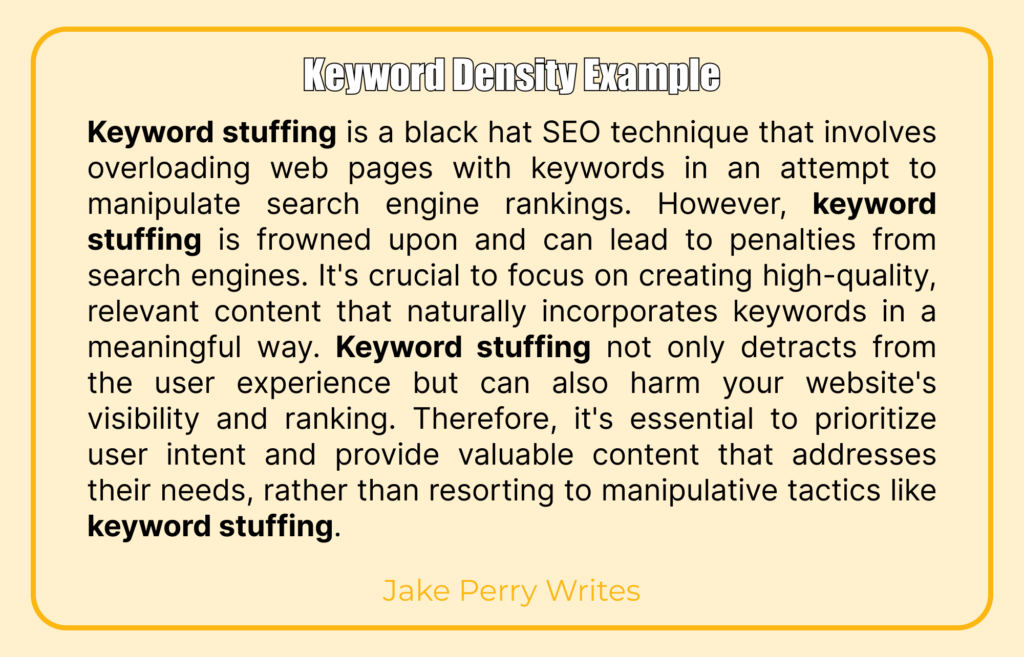Delving into the evolving landscape of SEO in content writing, we’ve gathered insights from Presidents, CEOs, and marketing experts. From a shift towards user experience to understanding search intent, here are the top eight significant changes these professionals have observed.
Table of Contents
Focus Shifts to User Experience
One significant change I’ve seen in SEO content over the years is the shift to focusing on user experience and value. When I first started, content was often thin, keyword-stuffed, and light on substance. Now, the content that ranks well and converts readers is material that provides real value.
For example, one of my clients had a blog filled with 500-word posts that were essentially extended product descriptions. We shifted to in-depth, educational content over 2,000 words. Although lighter on keywords, the new content addressed reader questions and pain points in detail. Traffic increased over 50% in three months. More importantly, the content built trust and authority, helping the brand become a leader in their industry.
Another change is the move to pillar content and topic clusters. Rather than a sea of disconnected posts, the top content strategies now focus on creating pillar content—in-depth guides, reviews, or explainers—and then developing related posts around the same topic. For a consulting client, we developed 10 pillar posts on core issues their customers face. Then we created 20-30 posts relating to each pillar, interlinking them. The result was a massive increase in rankings, traffic, and lead generation.
In summary, the role of SEO content has evolved from a focus on keywords and volume to a focus on experience, depth, and authority. By creating comprehensive, value-driven content on topics that genuinely help your target audience, you can build a successful, sustainable content strategy. Short-term gains from thin content are short-lived. But a content strategy built on substance and user experience leads to real business results.
Robert P. Dickey, President and CEO, AQ Marketing
Holistic SEO Emphasizes Content Quality
One significant change in the role of SEO in content writing over the past few years has been the shift from keyword-centric strategies to a more holistic user-experience focus. Previously, SEO practices often revolved around the mechanical insertion of keywords to manipulate search engine rankings. However, the evolution of search engine algorithms has steered SEO toward a broader emphasis on content quality and relevance to the user.
In my experience, this transformation is largely due to updates like Google’s BERT and other AI-driven algorithms that better understand natural language. This has necessitated a change in how we craft content. Now, rather than simply optimizing for search engines, I advise focusing on creating valuable content that addresses the needs and questions of the audience, thereby enhancing user engagement and satisfaction. This approach not only improves rankings but also fosters a positive user experience, which search engines increasingly reward.
Brandon Leibowitz, Owner, SEO Optimizers

User-Centric Approach Gains Importance
I remember when I first started dabbling in SEO content writing, it felt like a game of keyword stuffing and chasing algorithms. But as I’ve honed my craft over the years, I’ve noticed a significant shift toward a more holistic and user-centric approach.
It’s no longer enough to simply sprinkle keywords throughout your content; now, it’s about creating genuinely valuable and engaging content that answers the questions and needs of your target audience. I’ve seen firsthand how prioritizing user experience, crafting compelling narratives, and optimizing for semantic search have become essential for achieving sustainable success in the ever-evolving SEO landscape.
This shift has been both challenging and rewarding. It requires a deeper understanding of your audience, their intent, and the broader context of their search queries. But it also allows for greater creativity and the opportunity to produce content that truly connects with readers.
Liga Rudzite, Marketing Manager, Lemon Pitch
Align Content with User Intent
I’ve noticed that SEO in content writing has shifted from keyword stuffing to focusing on user intent and content quality. In the past, loading content with keywords was enough to rank well. Now, search engines prioritize content that genuinely answers users’ questions and provides real value.
I think this change means writers must create more in-depth, engaging, and informative content that aligns with what users are actually searching for. This approach not only improves rankings but also enhances the reader’s experience, building trust and authority for the site.

Evolution from Keyword Stuffing to Relevance
Keyword stuffing has changed a lot. Back in the day, keyword stuffing used to rank well and attract an audience, whereas now, Google’s algorithms have been updated, and Google ranks keywords based on relevance and the naturalness of how and where they occur.
Azam Mohamed Nisamdeen, Founder, Convert Chat

Topic Focus Over Keywords
SEO in content writing has shifted from keyword stuffing to topic focus. Before, cramming keywords dominated content, hurting readability. Now, creating valuable content around a central theme, with natural keyword integration, is key. Search engines reward informative, user-friendly content that establishes authority on a topic. This means in-depth research, clear explanations, and relevant visuals—all aspects that make infographics so powerful!
Diana Royanto, Writer, Milkwhale
Quality Content Meets User Needs
In recent years, SEO’s role in content writing has shifted significantly towards user-centricity and quality over keyword stuffing. Today, creating valuable, relevant content that genuinely meets the needs of the audience is paramount. Search engines increasingly prioritize content that engages users, answers their queries comprehensively, and provides a seamless user experience. This shift encourages content creators to focus on topics that resonate with their audience, incorporate natural language and conversational tones, and optimize for mobile and voice search. By adapting content strategies to these evolving SEO trends, businesses can enhance their online visibility and attract organic traffic effectively.
Understanding Search Intent is Crucial
One significant change in the role of SEO in content writing over the past few years is the increased focus on user intent. Search engines like Google have become more sophisticated, shifting from simply matching keywords to understanding the context and intent behind a search query. This evolution has altered how content writers approach SEO.
Previously, SEO strategies heavily relied on keyword density and exact-match keywords. Now, the emphasis is on creating content that directly addresses the needs and questions of users. Content writers must understand the search intent—whether it’s informational, navigational, transactional, or commercial investigation—and craft their content accordingly.
For example, if users are searching for “best smartphones 2024,” they likely want a detailed comparison of top models, features, and reviews, rather than a page stuffed with keywords. By aligning content with user intent, writers can improve relevance, enhance user satisfaction, and achieve better rankings.
This shift towards user intent has made content more valuable and user-centric, ultimately leading to higher engagement and better SEO performance.
Matt Phelps, Founder & CEO, InkGen





























